33rd Sunday in Ord. Time
Malachi 3:19-20; Ps. 97:5-9; 2 Thess. 3:7-12; Gospel of Luke 21:5-19
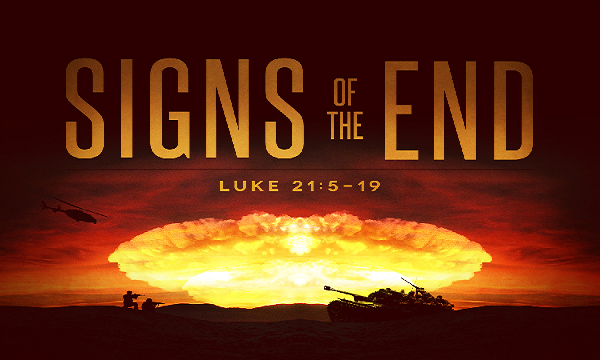
Preached by Msgr Philip Heng, SJ at Cathedral of Good Shepherd, Singapore on 17 November 2019
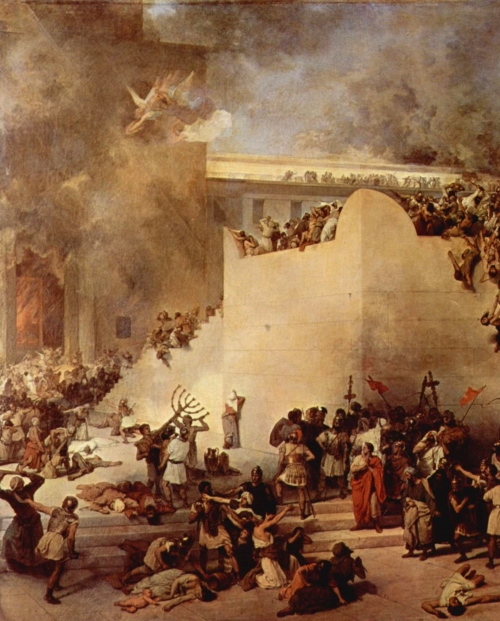 In today’s Gospel that we just heard proclaimed, in pointing out that the Temple in Jerusalem, will be destroyed and persecutions will surely come, Jesus is warning the crowds about the end-time, the end of the world; and also warning His disciples that they will have to endure persecutions for their faith, and that they are to turn to God for strength and salvation.
In today’s Gospel that we just heard proclaimed, in pointing out that the Temple in Jerusalem, will be destroyed and persecutions will surely come, Jesus is warning the crowds about the end-time, the end of the world; and also warning His disciples that they will have to endure persecutions for their faith, and that they are to turn to God for strength and salvation.
If we reflect on our what is happening in the world and in particular the personal daily living of our faith, we can see that, what Jesus is proclaiming also applies to us here and now. First, the “end-time” and the end of the world is a reality that you and I and every person in this world cannot deny and have to face. Even if the end of the world does not happen during our life-time, you and I have to face the reality that sooner or later we have to die. In other words, Jesus in today’s Gospel, is reminding you and I that our life time on earth is limited, but our life after we die is eternal.
My brothers and sisters in Christ, Jesus’ message for you and me, and indeed to all who are listening to today’s Gospel around the world, is essentially to remind us to live each day of our lives with greater attention and vigilance to how God wants us to live. To this Jesus adds, “Take care not to be deceived because many will come using My Name and saying, ‘I am He and the time is near at hand’, refuse to join them.”
 What is this “deception” that Jesus is warning us that we should not join and be a part of? One of the prevailing deception that the secular world tries to promote and persuade us to believe is for us to live our lives on earth as though what happens after we die is unimportant. The secular and materialistic world of Hollywood movies, internet and social media promote the message that we will be happy and fulfilled, if we have the “Three Gs” of gold, glory and glamour while on earth.
What is this “deception” that Jesus is warning us that we should not join and be a part of? One of the prevailing deception that the secular world tries to promote and persuade us to believe is for us to live our lives on earth as though what happens after we die is unimportant. The secular and materialistic world of Hollywood movies, internet and social media promote the message that we will be happy and fulfilled, if we have the “Three Gs” of gold, glory and glamour while on earth.
The deception and the half-truth that we breath in daily of the secular and materialistic world is that we are to enjoy our life on earth to the full, and not worry about what would happen to us after we die. In other words, they tell us that life is just about focusing on how to live a healthier and longer life; about looking good, and having the latest, the largest and the most expensive possessions we can ever have, and about how to build our lives on how people and the world can think well of us. We all know that unless our faith is deep, these messages that are often promoted subtly and consistently will sub-consciously distort and deceive us into thinking that God and the Church are unimportant and are restricting our freedom to do what we like.
My sisters and brothers is Christ, deep in our hearts, you and I and every person in this world knows that what the secular and materialistic world promotes is only half the truth. The first half of the truth is that the “three Gs” of gold, glory and glamour” will give a person only some form of passing and “superficial satisfaction”. However, the other half of the truth that is hidden is that such secular and materialistic satisfaction will not last and will not and cannot fulfil us deeply. As such, we all know that what the secular and materialistic world is promoting in fact a great lie. However, the question we need to ask ourselves is, “Why is the materialistic and secular world so much more attractive and convincing than the Gospel of Christ?
 As an experiment, it seems that if we were to put a frog in a pot of cold water, the frog will be happy to sit there and not move because it is very comfortable and contented. If we then put a small flame under the pot, the frog will at first feel uncomfortable and restless. However, if the temperature remains the same, after some time, the frog will adjust to the warm water and will remain sitting in the pot, and feel comfortable with the warm water. If we increase the temperature of the water very gradually, the frog will also gradually adjust to the warm and even later to the hot water. If the temperature of the water keeps on increasing and as the frog keeps adjusting to the heat of the water, eventually, the frog gets boiled alive without even knowing it.
As an experiment, it seems that if we were to put a frog in a pot of cold water, the frog will be happy to sit there and not move because it is very comfortable and contented. If we then put a small flame under the pot, the frog will at first feel uncomfortable and restless. However, if the temperature remains the same, after some time, the frog will adjust to the warm water and will remain sitting in the pot, and feel comfortable with the warm water. If we increase the temperature of the water very gradually, the frog will also gradually adjust to the warm and even later to the hot water. If the temperature of the water keeps on increasing and as the frog keeps adjusting to the heat of the water, eventually, the frog gets boiled alive without even knowing it.
My brothers and sisters in Christ, a wise Jesuit once said, “If we do not live what we believe, we will end up believing the way we live.” Like the frog in the pot, if we do not live the faith that we profess, and continue to absorb the half-truths and the deceptions of the materialistic and secular world, we will likely one day, begin to believe that happiness and fulfilment can be found in the materialistic and secular world, and that what happens after we die is unimportant and irrelevant.
In today’s Gospel, Jesus is reminding us to live our faith in the Gospel of Christ more vigilantly. Jesus is calling you and I, to fight the distortion of the materialistic and secular world. In fact, more radically, Jesus is reminding His disciples and us to expect and to be more prepared to suffer the trials and persecutions of the faith of the Gospel of Christ that we believe in.
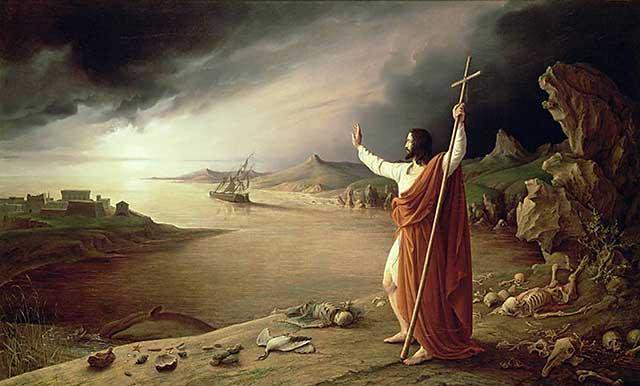 If this is so, my sisters and brothers in Christ, you may rightly be wondering, “How then are we to live such a faith that Jesus is calling us to? One way to have a sense of what this faith that Jesus demands of His disciples and us; which needs to face the pains and embrace the crosses that come our way, is to reflect on the reality of a true story of someone who has live such a faith.
If this is so, my sisters and brothers in Christ, you may rightly be wondering, “How then are we to live such a faith that Jesus is calling us to? One way to have a sense of what this faith that Jesus demands of His disciples and us; which needs to face the pains and embrace the crosses that come our way, is to reflect on the reality of a true story of someone who has live such a faith.
Cory (not her real name) who was born into a Taoist family. Although she had good Catholic friends, she never thought of converting to Catholicism. When Cory turned 60, she was diagnosed with a rare cancer that required a complicated seven-hour operation. In the face of such a situation, most would have probably reacted in anger and resentment. Instead, Cory was calm and at peace. As she reflected more deeply, she began to realise that her interior peace and strength was coming from God’s love for her.
The operation went smoothly and to her great surprise, she recovered within a few days. Driven by immense gratitude to God, she felt moved to join the Rite of Christian Initiation for Adults (RCIA) journey to learn more about this Loving and Compassionate God.
For the next 9 years, the cancer kept returning and each time, Cory had to undergo surgery. She underwent 10 surgeries without the need for any post-surgery painkillers. She knew that it was by God’s grace that her pain was minimal and each recovery swift.
Throughout this period, Cory carried her cross with dignity and reflected the “face of Christ” to others. She never asked God “Why me?” as most would; but instead, she prayed that God would use her to bring others to Him. In fact, she shared that, if she could only bring one soul to God, it would be worth whatever pain she had to endure. Such was the depth of her relationship with Jesus.
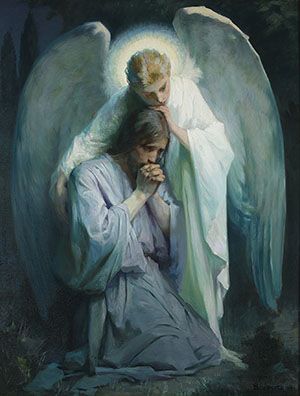 Although Cory never complained, during her last months, her pain became visibly excruciating and difficult for Dina her caregiver to witness without being moved to tears. In response, Cory gently assured her, “Dina, you must not cry. Jesus is suffering with me and more than me. He is carrying His cross and crawling in agony to Calvary. My pain is nothing compared to what He has to suffer for us and our sins.”
Although Cory never complained, during her last months, her pain became visibly excruciating and difficult for Dina her caregiver to witness without being moved to tears. In response, Cory gently assured her, “Dina, you must not cry. Jesus is suffering with me and more than me. He is carrying His cross and crawling in agony to Calvary. My pain is nothing compared to what He has to suffer for us and our sins.”
Whenever her family gathered around her bedside, Cory spoke of love and forgiveness and expressed her love for her family openly. Her family saw how much she loved them and constantly prayed for Jesus to care for them.
One night, Cory got up to go to the washroom and as she walked in, a surreal but unmistakable Presence of God took her by surprise. Right before her very eyes stood Jesus, who looked at her with an infinitely loving gaze that made her heart burst with joy. Cory’s tears flowed uncontrollably.
Dina noticed the resplendent joy in Cory’s eyes when she returned to the room. Still recovering from the encounter, Cory muttered, “Jesus is so gentle and peaceful . . . seeing Him has given me such deep happiness, longing and love for Him . . . I know I belong to Him.”
During her life, being aware that all she possessed came from God’s abundant blessings and that they belonged to God, Cory had the wisdom to give very generously to different charities and causes without looking for glory. To Cory, what truly matters in our lives is found within our hearts, between God and us; and not about receiving praise and glory from others and the world. Some months later, Jesus brought her to her True Home in heaven. Our faith tells us that Cory is in heaven.
My brothers and sisters in Christ, as I conclude, let us ask ourselves, “What can we learn from Cory’s faith”? In today’s Gospel, while Jesus urged His disciples and us to live our faith vigilantly, we can see that our sister Cory’s vigilance in her faith is beautifully exemplified through her simple and yet, profoundly personal relationship with Jesus.
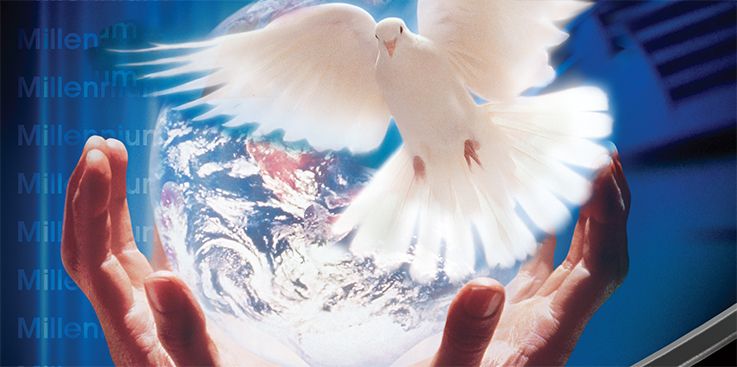 Cory concretely also showed her Christ-like virtues in being Jesus’ instrument of God’s Peace, when she spoke of love and forgiveness and expressed her love for her family openly, especially during her illness. Indeed, Cory was able to transcend the materialistic and secular distortions and temptations of the world. And, more so, she was able to live the fullness of her faith by uniting everything she experienced, especially her very painful suffering during her illness with her personal love for Jesus.
Cory concretely also showed her Christ-like virtues in being Jesus’ instrument of God’s Peace, when she spoke of love and forgiveness and expressed her love for her family openly, especially during her illness. Indeed, Cory was able to transcend the materialistic and secular distortions and temptations of the world. And, more so, she was able to live the fullness of her faith by uniting everything she experienced, especially her very painful suffering during her illness with her personal love for Jesus.
The Holy Spirit that gave Cory the wisdom to live such a life of holiness, is also the same Holy Spirit in your heart and my heart. Will we ask God for the strength and wisdom to live the life of holiness, as our sister Cory has shown us, or will we simply allow and accept the evil distortions and fantasies of the materialistic and secular world to weaken our faith, and like the frog in our example, think and behave and live as though we can be happy and fulfilled, without facing the reality that you and I can die anytime, and also foolishly think that we do not need to worry about what happens after we die?
Msgr Philip Heng, S.J.
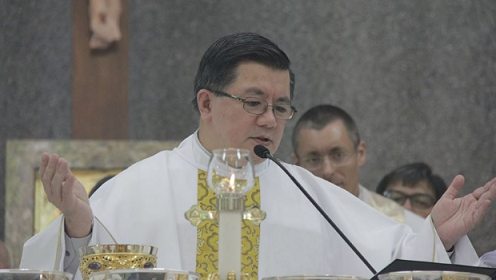
Website-Counter from 29th November 2019
